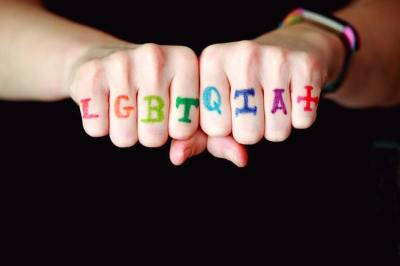
The passing of marriage/family advocate James C. Dobson, PhD., was acknowledged online by many hateful remarks from his ideological opponents. Not since Liberty University founder Jerry Falwell died in 2007 had I seen a deceased Christian leader so vilified. One of the “‘tamer” posts about Dobson’s passing read, “I was taught that you’re only supposed to say good things about the departed: James Dobson is dead. Good.”
I was privileged to know both Falwell and Dobson very well and was employed a number of years by the latter. The fact these Christian leaders, each of whom served numerous presidents and impacted the world through lifelong service to God, would be brazenly cursed at their passing, is troubling. But at his death in 2018, even the globally venerated Dr. Billy Graham’s name was taken-in-vain by online posters. For a culture that has moved so far from the concepts of moral boundaries or an eventual accounting before God, quite literally nothing is sacred.
As I write this article, LGBT activists in Seattle used legal leverage in attempting to put a stop to Sean Feucht’s “Revive in 25” Christian music tour. Performance permits for Feucht’s tour were revoked in eight Canadian locales. Woke activists in the U.S. also urged cities to make it illegal for this particular set of Christian concerts to happen.
Why? Because the singer reads from the Bible and holds to Scriptural views of gender and human sexuality. The militant LGBT activists say that Feucht’s music and sharing of the Gospel constitutes “malicious harassment” and must be stopped. Of course, all persons (including those whose views about sex and gender run counter to the Bible and human biology) are worthy of respect, dignity, and due process. Just not special process.
Americans have been subjected to the insistence and demands of LGBT activists for decades now. Again, people are free to live as they choose (within legal limits), and people are free to believe what they want to believe. The health of the body and state of one’s soul are personal matters. But life and eternity are matters far more serious than perhaps realized.
Why? Because agency implies accountability. We all make decisions, and each of us will answer for those decisions. (We ministers have a responsibility to remind people of such things). In the spirit of love, I therefore feel compelled to correct some things I am convinced the activists among us get wrong.
First, the assertions that “We all make our own truth.” Our licentious culture insists, “You do you!” But there are many areas of life that are not matters of subjective preference. Some things are objectively true and applicable to everyone.
Take, for instance, water, food, and air. It is universally true that all people need hydration, nutrition, and oxygen. Without these — no matter who you are — you will die. No one may “identify” outside of these boundaries. Some things in life are matters of preference. But everything is not relative.
Secondly, “Disagreement with alternative lifestyles is borne out of fear and/or hatred.” Because serious, scholarly research mitigates against the claims of LGBT ideology, the “phobic” trope remains the default response to most scrutiny.
Neither phobia nor animus drive the counter claims of genetics, psychology, sociology, theology, or natural law. Isn’t it at least possible that dissent against LGBT activism is borne out of a desire for truth and societal good? Couldn’t at least some of those who disagree seek reality over narrative?
Finally, it is wrong that LGBT activists insist that messages counter to their ideology must be legally suppressed. The Constitution protects the immutable, natural rights shared by all people. The activist’s insistence on discrimination against viewpoints with which they disagree must not find legal support in a constitutional republic.
Regarding attempts to negate the First Amendment rights of Christians, ministers, and churches, there are inevitable tensions between authentically biblical content and LGBT talking points that have emerged in recent years. Scripture, Christian doctrine, and moral boundaries dating back to the beginnings of human history are now being forcibly jettisoned — and by those claiming to be the custodians and exemplars of tolerance.
Today, acceptance of the LGBT presuppositions is nearly unquestioned. But has Scripture changed? Has human nature changed? Do comparatively recent cultural changes somehow vindicate judicial abandonment of the timeless moral law on which America’s Founders framed the Constitution?
In a meeting more than 20 years ago, Dr. Dobson expressed his conviction that the LGBT movement was less about individuals “feeling accepted,” and more about using legal means to silence Christianity. I wasn’t so sure. “The criminalization of Christianity? The Bible as contraband, illegal to be fully proclaimed?” At the time, I thought that surely Dr. Dobson was overstating things. But he was right. Dr. Del Tackett, another valued colleague from those days, said to me on a radio broadcast, “Ten years ago I would say that the core value driving the culture was ‘sexual license.’ Today, I believe that core value has become, simply, license.”
Institutional enforcement for LGBT narratives and demands has been around for years. Now, use of legal means to silence honest intellectual and theological dissent is attempted. Apathy and silence are not options when powerful agencies in our nation have “gotten things wrong.”
Dr. Alex McFarland is a youth, religion and culture expert, author of more than 20 books and is heard live daily on the 200+ stations of the American Family Radio Network. He is Director of worldview for Charis Bible College, Woodland Park, CO, and co-hosts the “Truth and Liberty” TV broadcast. His website is, alexmcfarland.com.

















